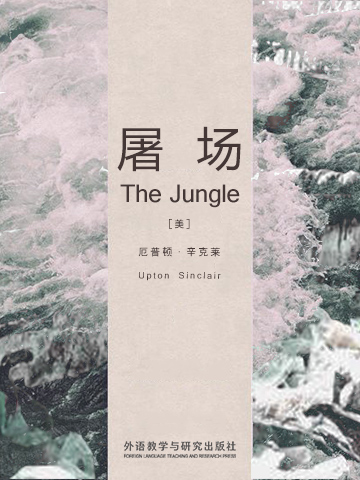该书描写了一个立陶宛移民家庭—尤吉斯一家的悲惨遭遇。他们满怀憧憬从家乡来到美国寻梦,在芝加哥屠场区找到工作,以为美好生活将从此开始。不料灾难接踵而至,先是尤吉斯工伤失业,接着妻子奥娜被工头奸污,尤吉斯怒打工头而入狱,随后妻子难产死亡,幼小的儿子淹死。亲朋好友中男的流落街头,女的被逼为娼,美国梦演变为可怕的梦魇。更悲哀的是,这个万恶的资本主义机器不仅害得他家破人亡。作者辛克莱 ,更毒害了他的心灵。他自暴自弃,干起合伙抢劫的勾当,甚至还在屠场罢工时当上了工贼。所幸的是,在风起云涌的社会主义运动中,尤吉斯终于找到了人生的奋斗目标,他的阶级觉悟被唤醒。小说结尾时,他深信社会主义是唯一的出路,而这也正是辛克莱的信仰。
该书描写大企业对工人的压榨和芝加哥屠宰场的不卫生情况,引起人们对肉类加工质量的愤怒,导致制订了食品卫生检查法。后以反法西斯英雄兰尼·巴德为主人公写了11本系列小说,反映1914年以来的重大事件。
The Jungle is a 1906 novel written by author and journalist Upton Sinclair. Sinclair wrote the novel to highlight the plight of the working class and to show the corruption of the American meatpacking industry during the early-20th century. The novel depicts in harsh tones poverty, absence of social programs, unpleasant living and working conditions, and hopelessness prevalent among the working class, which is contrasted with the deeply-rooted corruption on the part of those in power. Sinclair's observations of the state of turn-of-the-century labor were placed front and center for the American public to see, suggesting that something needed to be changed to get rid of American "wage slavery". The novel is also an important example of the "muckraking" tradition begun by journalists such as Jacob Riis.
- Chapter 1
- Chapter 2
- Chapter 3
- Chapter 4
- Chapter 5
- Chapter 6
- Chapter 7
- Chapter 8
- Chapter 9
- Chapter 10
- Chapter 11
- Chapter 12
- Chapter 13
- Chapter 14
- Chapter 15
- Chapter 16
- Chapter 17
- Chapter 18
- Chapter 19
- Chapter 20
- Chapter 21
- Chapter 22
- Chapter 23
- Chapter 24
- Chapter 25
- Chapter 26
- Chapter 27
- Chapter 28
- Chapter 29
- Chapter 30
- Chapter 31
- 书评 写书评
- 笔记
-
书评加载中...




20151120134324772608.jpg)
201511201343388651372.jpg)
201511201343484851103.jpg)










 京公网安备 11010802032529号
京公网安备 11010802032529号
笔记加载中...